Are your Essential Oils what you think they are?
There is a lot to know about essential oils. In Part One of a three part series we look into the production, benefits, and risks of Essential Oils.
An overview of essential oils?
Essential oils are the oils extracted from various plants that are beneficial to us. These oils are used in various industries and for a lot of different reasons. They often have a stronger smell than the plants they come from because of the concentration of active ingredients.
It is widely believed the compounds extracted have healing effects on the body. Practitioners, as well as veterinarians, use them as a natural alternative in naturopathy and aromatherapy.
Aromatherapy is a caring, hands-on therapy which seeks to induce relaxation, to increase energy, to reduce the effects of stress and to restore lost balance to mind, body and soul – Robert Tisserand
Essential oils can be used in oil burners where they disperse the scented vapour into the air where it makes its way into our olfactory senses going to the brain. Essential oils can be added to products such as candles, body creams or washes, perfumes and all sorts of beauty products. Products are used mainly for their fragrances but also for the healing effects of the natural antioxidants some oils have on the body.
Is an essence the same as oil?
An essence is a flavouring that gives the appearance and aroma of the real thing. It will not smell as strong as the real thing and is often based in water, not oil. Essential Oils are made from plants and are 100% real natural oils. While Fragrant oils are often synthetic and man-made fragrances and don’t contain the real product at all. It is said that they can be harmful for the body because of the synthetic ingredients used in the production.
Synthetic or inorganic substances do not contain any ‘life force’; they are not dynamic. Everything is made of chemicals, but organic substances like essential oils have a structure which only mother nature can put together. They have a life force, an additional impulse which can only be found in living things. –Robert Tisserand
Are all Oils the same?
Once upon a time, essential oils were produced and sold in small markets, often by qualified and experienced practitioners. Mass production by larger companies entering the market and a shift from helping people to making profits, has clouded the quality and the purity of the oils. The environment the plants have been grown in may also be negatively affected.
What is a good oil?
The essential oil companies all claim their oils are the best. The reality is really in the lap of the gods. It is hard to know what is the truth about this. My advice is, if you think the company and seller is turning over their oil regularly then that may be better than stock that has sat on the shelves for a long period of time. Reading labels, if present, is useful, but not if the shelf time is long. Other than that, trust your gut if the company is good.
Can I make essential oils? Yes, but….
Extraction: There are 2 ways to extract essential oil from plants, cold pressing or steam/water distillation. You will need a specialised distillery pan or a microwave distillery kit and other bits of equipment. If you decided to cold press your plants you will need to purchase a good quality press and filtering system. Whichever way you choose to go you will need Amber bottles to keep the direct light away from the oil.
The Plants: Make sure the plants you want to extract the oil from have not been exposed to or grown without using herbicides, pesticides or chemical fertilizers. Harvesting of these plants is best done just before flowering or halfway through the flowers opening. The exception is lavender which is best harvested after the flowers have opened and withered.
The Volumes: You will need a huge amount of the plant to make a small amount of essential oil, so making small batches of oil on a regular basis will probably be what you do. If you want to make rose oil, it will take approximately 60 roses to get one drop of rose oil, so paying someone else to extract the oil, although expensive will save a lot of time and frustration. Rose oil is typically added to a carrier oil to increase the quantity of the product.
Benefits of essential oils?
While Essential oils are pleasant to smell they have also been credited with so many different health benefits. They are complementary therapy for other forms of medical care. This is known as integrative medicine. Conventional medicine and naturopathy, for example, complement each other and form a holistic way and natural approach to health care.
Lavender oil is associated with sleep quality and aromatherapy is great for relaxing, improving your mood. Reducing stress levels can increases our work performance, satisfaction and happiness. Oils have a role with treating a large range of ailments such as nausea, headaches, toothache, muscular aches and body pains, menstrual cramps, circulation troubles, menopause complaints, fatigue or anxiety, stress, or depressive problems.
Your skin can also benefit. Essential oils work as an anti-inflammatory, treat fungal infections, work as an antibacterial agent by killing pathogens on the skin. They also contain antioxidants and are great for anti-ageing as they have tightening and smoothing properties. The oils also help dry the skin so good for treating acne-prone skin.
Are there problems with Essential Oils?
Essential oils, although natural and coming from nature, also have potential side effects of which you must be aware. Inappropriate use of the oils can lead to serious or adverse reactions by the body and ingesting (swallowing or touching) incorrect amounts or the wrong oils can lead to poisoning. Working with an aromatherapist is important, so you know how to use the oils to the best for your health.
Important Precautions
- Most oils need to be diluted with a carrier oil before being put directly onto the skin.
- It may also be beneficial to do a test skin patch test to make sure you don’t react to a specific oil.
- DO NOT use oils internally unless directed to by a health professional.
- Children’s doses also vary to adults as they may be more sensitive to the oils
- Pregnant women should consult their doctor before using any essential oil, especially in the first trimester.
- Never use eucalyptus, rosemary, fennel, verbena, peppermint or wintergreen around children or infants
- DO NOT use lavender or tea tree oil on the skin of pre-pubescent males.
What are the “must-haves” ?
Depends on why you want the oils. If you want oils that will burn well in your oil burner and make your house smell great, then this is a personal choice and I often use lavender, rose, lemon or lemongrass and sandalwood. Clove oil and peppermint are great for aches pains and nausea. Lavender is great for relaxation, promotes sleep and reduces stress. If you want an oil that is great for cleaning around your home, then nothing is better than using eucalyptus and tea tree oil! You may want to consider expanding to our list of essential oils in Part 3 of this series.
How long will they last?
Oils don’t go off, but they do change over the years especially from oxidation and it also depends on the storage conditions as to the life of each of the oils. If the oil had changed in consistency, colour or smell to what it was when you first purchased it, then discard the oil. It is suggested that you replace your oil every 3 years. The life of different oils vary. Some oils (e.g. Citrus oils) will only last for 1-2 years but the majority will last 3-4 years, whereas, a few will last 15 years, so by replacing your oils every 3 years you will be sure to be doing the right thing.
Extending the shelf life of essential oils.
- Always store your oil in a cool, dark area of the house, cupboard or drawer
- Store in dark coloured glass bottles. Amber coloured glass is great as this will reduce light entering the bottle.
- Keep in small bottles. If it is easy to transfer the oil into a smaller bottle, then do so as this will reduce the amount of oxidation that takes place.
- Make sure you always replace the bottle cap tightly when you use the oils.
Essential Oils are different to Essences and Fragrant Oils. Integrative medicine can improve health outcomes. Bringing the beautiful aromas of natural world Essential Oils, when produced, used and stored well produce great benefits to our homes, health and wellness.

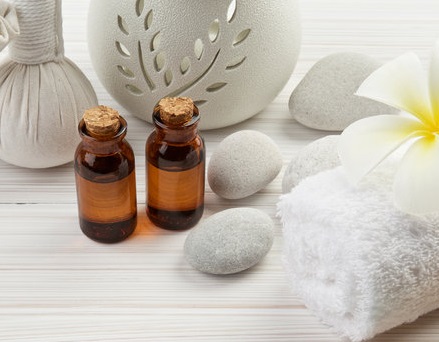
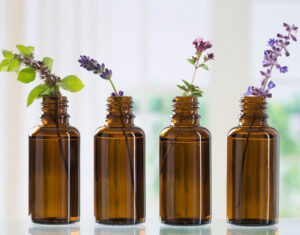
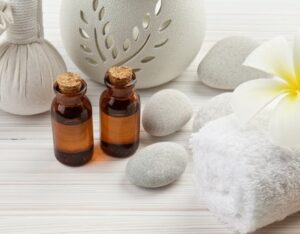
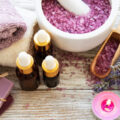
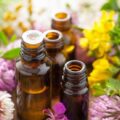
0 Comments